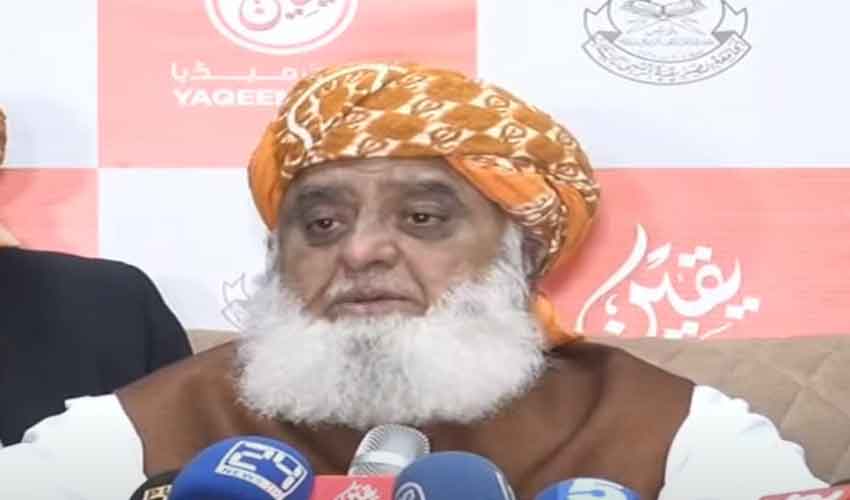Jamiat Ulema-e-Islam-Fazl (JUI-F) chief Maulana Fazlur Rehman has emphasized that improving economic indicators alone will not address the challenges faced by the common man, as facts about the state of the economy must be transparently shared.
Speaking at a press conference in Karachi on Saturday, he stressed the need for a collective approach to resolve national issues.
"The common man will not get relief until the value of the rupee improves," he stated, adding that aspirations to boost the economy are commendable, but the implementation must benefit ordinary citizens.
Fazlur Rehman criticised the lack of consultation with the JUI-F during talks with Pakistan Tehreek-e-Insaf (PTI). "We were not taken into confidence regarding the discussions with PTI," he remarked, adding that his party did not know what the PTI was doing.
He also raised concerns about election irregularities, stating that in Balochistan, only one constituency was opened upon JUI-F's request, and NADRA had confirmed that only 2% of votes in some areas were valid.
"A person who did not win even from a single polling station was declared the winner," he claimed, urging reforms in the electoral process.
Addressing the issue of madrassa reforms, Fazlur Rehman questioned the delay in resolving the matter. He acknowledged that Khalid Maqbool Siddiqui, the federal education minister, had visited him at his place and tried to explain the situation regarding the bill to him.
"A law has been enacted at the parliamentary level for madrassa registration, and relief was provided through a presidential ordinance. We have no objection to these steps, but consensus is essential," he said, while accusing the government of trying to place some madrassas under its control.
Fazlur Rehman underscored the importance of resolving critical issues, including water distribution, through dialogue and mutual understanding. "The issue of drawing canals from the Indus River should be resolved by consensus," he said.
He also criticized politicians for compromising on democracy, the Constitution, and principles. "Governments have completed their terms even during martial laws," he remarked.
The JUI-F chief concluded by reiterating the need for transparency, consensus, and inclusive policymaking to address national challenges effectively. "National issues cannot be resolved unilaterally; collective efforts are necessary to pave the way for progress," he said.



























